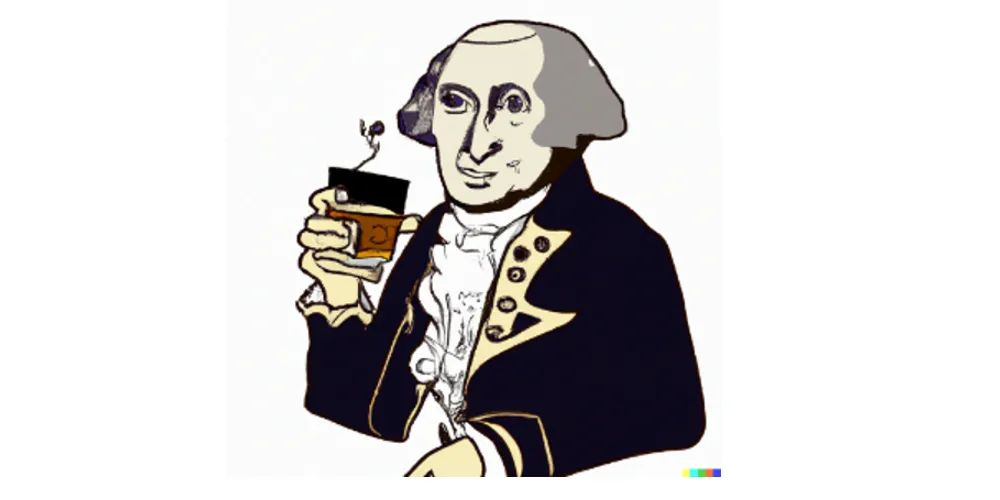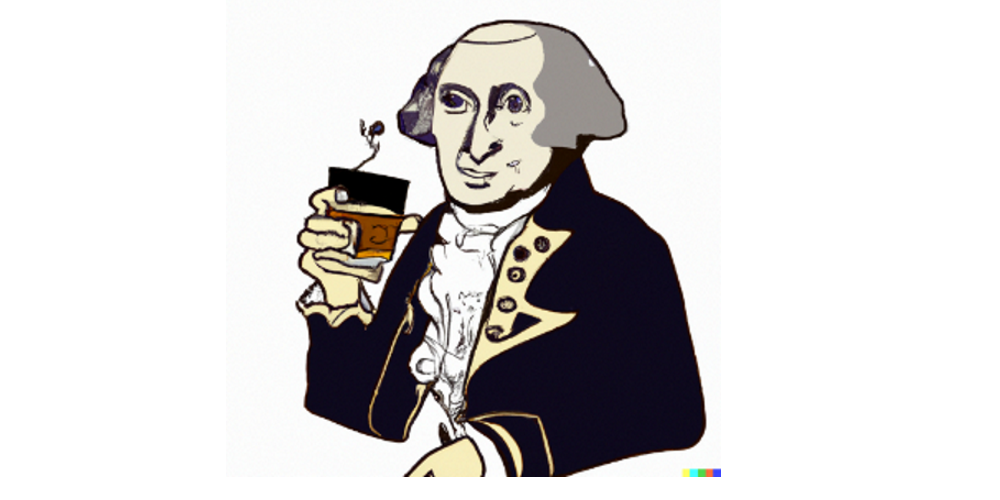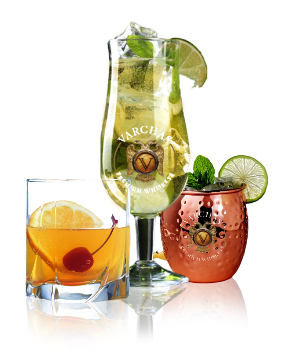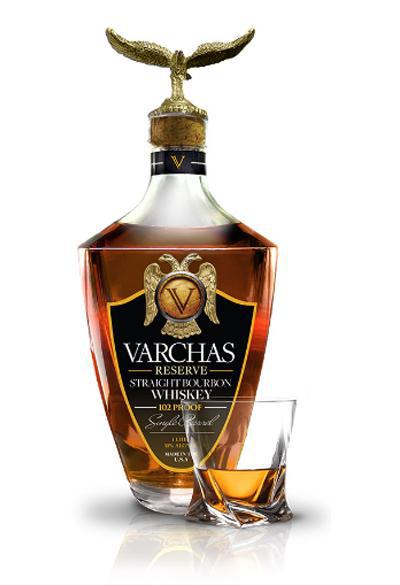
Shankar Distillers Lifts A Glass To Our Whiskey Loving Founding Fathers This Fourth of July
SHANKAR DISTILLERS LIFTS A GLASS TO OUR WHISKEY LOVING FOUNDING FATHERS THIS FOURTH OF JULY

When Varchasvi Shankar had the idea of starting a new American whiskey brand and distillery, he found himself in very good company. As we all take a break over the long weekend that leads up to Tuesday, July 4, let we whiskey enthusiasts pour a glass of Varchas Whiskey or Rye, and pause to ponder the amazing country that America, the adopted country of our founder, has become, and the place whiskey has in our history. The making of moonshine corn and rye whiskey can be traced to the 1600s at the latest in Virginia, Pennsylvania and New York, Scottish and Irish immigrants having brought the beverage, and the knowledge of how to make it, to the New World. Indeed, whiskey-making was one of the first cottage industries in the land; it was responsible for George Washington mustering federal troops for the first time after the Revolutionary War during the Whiskey Rebellion. Whiskey also went with the early pioneers as they traveled westward to explore new territories. Whiskey was a favorite beverage of America’s founding fathers—something we remember in July as we celebrate American independence from Great Britain 247 years ago. In the year 1776, when the United States of America was being birthed from the 13 New World colonies of England , a group of remarkable people came together to shape the destiny of a new nation. These were the founding fathers, supported by remarkable wives like Abigail Adams, Martha Washington, Martha Jefferson and others, patriots driven by ideals of liberty and justice, determined to forge a future free from the shackles of British rule. Among their many concerns, one issue emerged as a contentious point of discussion: whiskey.
Drinking options were different in 1776 than today. What indigenous spirits America had, like rum and applejack, were imbibed freely and often. Whiskey was produced on a more limited way and leaned more into the moonshine category until distilleries were more formalized in the 1790s. The working classes mainly indulged in beer and cider, while the upper crust drank fortified wines like sherry and Madeira popular long the East coast where the colonial population was concentrated. Whiskey, though, gradually grew in popularity. Whiskey, a beloved spirit among the American people, had become a symbol of rebellion and defiance. It was a drink that brought people together, emboldening their spirits and fostering camaraderie. However, it also became a subject of heated debate among the founding fathers, who were grappling with the question of how to regulate this potent “elixir.” At the heart of this spirited discussion was George Washington, a towering figure and the eventual first President of the United States. Washington himself had a personal stake in the matter, as he was not only a passionate advocate for the fledgling nation but also a distiller of whiskey on his Mount Vernon estate.


As the members of the Continental Congress gathered in Philadelphia to draft the Declaration of Independence, the aromas of whiskey, hard cider and rum lingered in the air, for they were popular drink in taverns where the delegates frequently met. Benjamin Franklin, known for his wit and wisdom, was often found sipping whiskey, engaging in lively conversations with his fellow patriots. He argued that whiskey was a symbol of the people’s freedom, a liquid testament to their resilience and their ability to govern themselves. Thomas Jefferson, the eloquent author of the first draft of the Declaration of Independence, was another proponent of the fiery spirit. He believed that whiskey held an inherent connection to the land and its people, an expression of the agrarian values upon which the nation would be built. Jefferson saw whiskey as an economic opportunity, a means to support American farmers and stimulate commerce. The Whiskey Rebellion Meanwhile, Alexander Hamilton, a brilliant mind and advocate for a strong central government, had reservations about the unregulated production and consumption of whiskey. He recognized the potential for abuse and the dangers of an uncontrolled market. Hamilton argued for the implementation of a whiskey tax, not only to generate revenue for the fledgling nation but also to establish a mechanism of control over the industry.
These debates raged on, as the founding fathers grappled with the delicate balance between personal freedoms and the needs of a unified nation. Ultimately, they reached a compromise. They agreed to levy a whiskey tax, not as a means of stifling individual liberty, but as a tool for responsible governance. In 1791, the Whiskey Act was passed, imposing a tax on the production and sale of whiskey. The tax revenues would help fund the new government and its ambitious endeavors. This decision was met with mixed reactions, with some distillers and citizens expressing absolute outrage, viewing it as an encroachment on their rights. However, over time, the whiskey tax would prove instrumental in establishing the authority and economic stability of the federal government. The founding fathers, recognizing the importance of compromise, had taken a step toward building a more perfect union. In the centuries that followed, whiskey continued to be an integral part of American culture, symbolizing both celebration and reflection. From the distilleries of Kentucky, and Michigan, to the bustling bars of New York City, whiskey became an enduring part of the American spirit. The story of the founding fathers and whiskey reminds us that even in the face of differing opinions, unity and compromise can pave the way for progress. It serves as a testament to the enduring legacy of those who sought to create a nation built on freedom, justice, and a fine glass of whiskey. Shankar Distillers is proud to be part of this rich tradition around whiskey. And we look forward to opening a new distillery and brand/vistor’s center in Troy, Michigan this summer. In addition to our existing expressions, we will be rolling out six new expressions to coincide with the opening of our new facility. Stay tuned for updates. Have a great Fourth of July and please drink responsibility.







